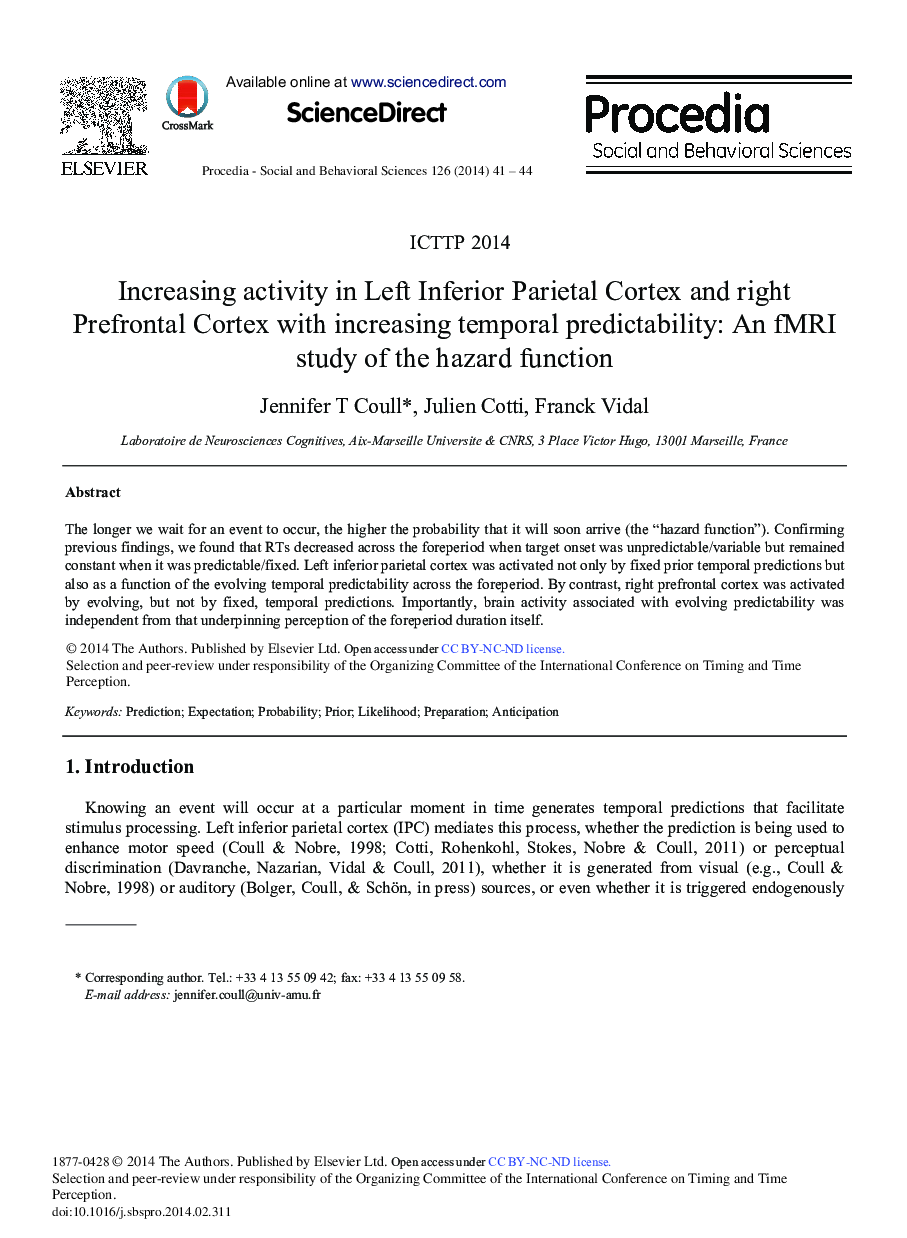| Article ID | Journal | Published Year | Pages | File Type |
|---|---|---|---|---|
| 1114104 | Procedia - Social and Behavioral Sciences | 2014 | 4 Pages |
Abstract
The longer we wait for an event to occur, the higher the probability that it will soon arrive (the “hazard function”). Confirming previous findings, we found that RTs decreased across the foreperiod when target onset was unpredictable/variable but remained constant when it was predictable/fixed. Left inferior parietal cortex was activated not only by fixed prior temporal predictions but also as a function of the evolving temporal predictability across the foreperiod. By contrast, right prefrontal cortex was activated by evolving, but not by fixed, temporal predictions. Importantly, brain activity associated with evolving predictability was independent from that underpinning perception of the foreperiod duration itself.
Related Topics
Social Sciences and Humanities
Arts and Humanities
Arts and Humanities (General)
